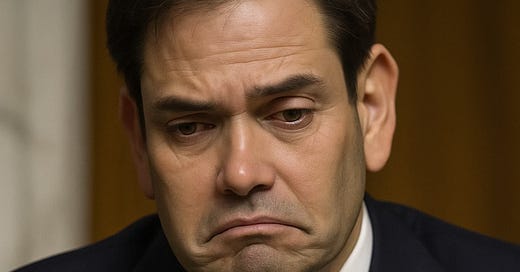Now the U.S. Sanctions Human Rights Opinions
I’m just a plainspoken Colorado criminal defense lawyer, but the way I see it…
The United Nations and the International Criminal Court (ICC) are independent and legally distinct institutions.
Yet earlier this month Secretary of State Marco Rubio sanctioned a United Nations human rights official based on a presidential executive order imposing sanctions on the ICC. The outrageous act is baseless both in principle and in law. Francesca Albanese, an Italian legal scholar and human rights expert, is the first United Nations Special Rapporteur ever to be sanctioned by a western democracy for doing her job.
Her assets in the United States have been frozen; she and her family members are barred from travel to the United States; Rubio smears her as an antisemite and supporter of terrorism, as well as someone with open contempt for the current U.S. administration (she’s in a long, long line there).
For a certainty, the conclusions of Albanese’s report to the U.N., released last October, is harsh, including “reasonable grounds to believe that Israel had committed acts of genocide in Gaza.” She details a catalog of horrors, as any description of active war would be. And her opinion is that the continuing war “risks causing irreparable prejudice to the very existence of the Palestinian people.” (As does Donald Trump’s proposal to turn Gaza into a casino playground for the rich.) And she does encourage the ICC to continue to investigate possible commission of crimes of genocide.
But in the United States we don’t punish people for their ideas and opinions; authoritarian states do that; dictators do that.
Keep reading with a 7-day free trial
Subscribe to Drunk & Disorderly to keep reading this post and get 7 days of free access to the full post archives.





